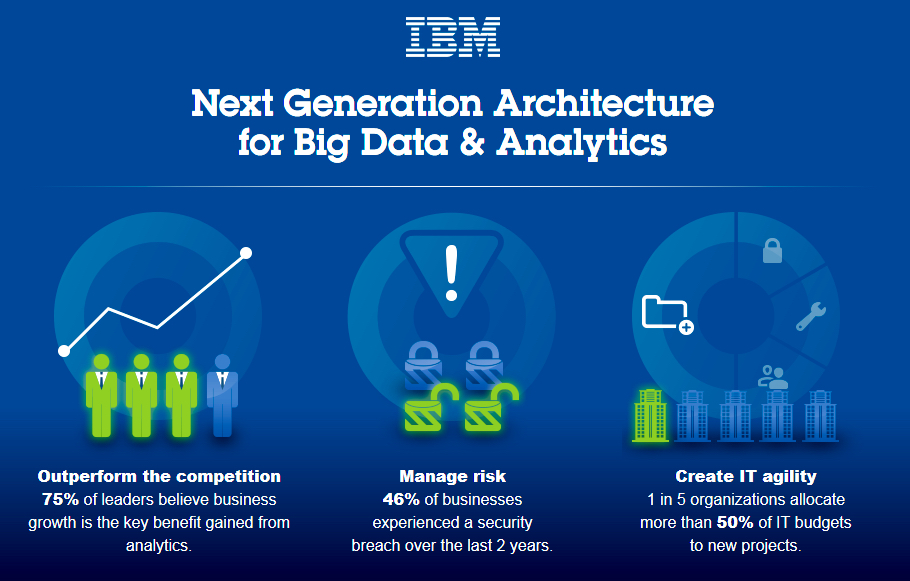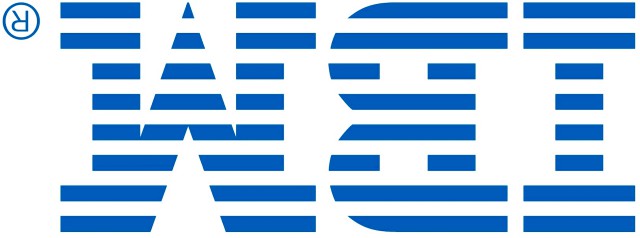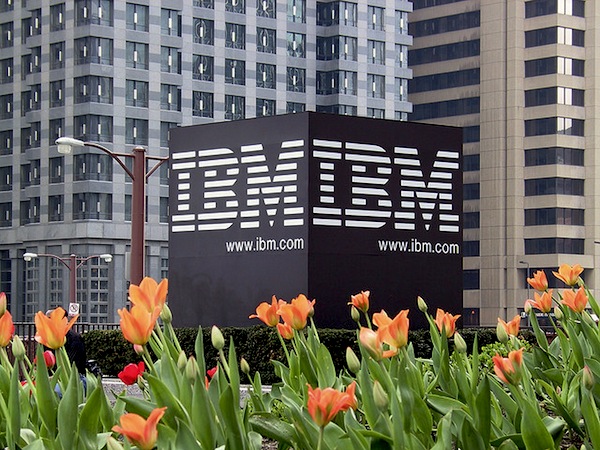
The mainframe is dead... Long live the mainframe!
Rumors are flying within IBM this week that the z Systems (mainframe) division is up for sale with the most likely buyer being Hitachi. It’s all a big secret, of course, because IBM management doesn’t tell IBM workers anything, but the idea is certainly consistent with Big Blue’s determination to cut costs and raise cash for more share buybacks. And the murmurs are simply too loud to be meaningless. Think of this news in terms of a statement made last week by an IBM senior executive: "In a world of Cloud Computing, it does not matter what equipment or whose hardware the cloud runs on. We are a Cloud company…"
This move by IBM would not surprise me in a bit. It is my guess IBM wants someone else to make and support the hardware. They’ll be happy to sell time sharing services, AKA cloud services. They’ll be happy to let someone else sell and maintain systems.

The problem with analytics
There is a difference between knowledge and understanding. Knowledge typically comes down to knowing facts while understanding is the application of knowledge to the mastery of systems. You can know a lot while understanding very little. Just as an example, IBM’s Watson artificial intelligence system that defeated the TV Jeopardy champs a few years ago knew all there was to know about Jeopardy questions but didn’t really understand anything. Ask Watson to apply to removing your appendix its knowledge of hundreds of medical questions and you’d be disappointed and probably dead. That’s the problem with most analytics, which is why it can be a hard sell.
The answer to this problem, we’re told, is not just machine learning but Deep Machine Learning, the difference between the two being that plain old machine learning is a statistical process that could be (and used to be) replicated by hand, while the deeper variety looks several generations deep in a longitudinal analysis that quickly grows too big for mere mortals to comprehend. Deep machine learning will, theoretically, find all the interconnections and dependencies that until now we’ve had to rely on domain experts to provide, yet even then it can only happen if you happen to be gathering the right data.

IBM creates faster, longer lasting memory technology
IBM’s researchers have found a way to build computer memory that’s incomparably faster to anything we have today. Besides being that much faster, it’s also more enduring and dense. Sounds a bit like science fiction, doesn’t it?
The new technology is called PCM, or phase-change memory, and it revolves around storing three bits of data per cell. It doesn’t lose data when powered off, and it can live through "at least" ten million write cycles (average USB stick can endure some 3,000 cycles).

New partnership helps boost eCommerce platform performance
In order to get a competitive advantage, retailers are increasingly looking to deliver a rich, interactive eCommerce experience for their customers. The problem with this is that it can lead to platforms being loaded down with extra functions that result in a drop in performance.
Application delivery specialist InstartLogic has announced that it's partnering with IBM to help retail clients accelerate the performance of their eCommerce platforms.

Digital divide is holding back the UK economy
New research by business organization the CBI in conjunction with IBM shows that a digital divide is opening up across the British economy, with just over half (55 percent) of 'pioneer' firms adopting digital technologies and processes, while the remaining 45 percent are falling behind.
Despite the UK taking top place globally for e-commerce and fifth place for the availability of technology, it ranks only fourteenth in the world for company-level adoption of digital technology, with many companies struggling to digitize their businesses at the rate of peers in other countries.

New analytics platform aims to transform mental healthcare
Healthcare costs for people diagnosed with mental illness and common chronic health conditions are 75 percent higher than for those without a mental health diagnosis according to the Centers for Medicare and Medicaid Services (CMS).
This is because there’s often a lack of coordination between multiple care providers, different state policies and diverse payment structures which can result in poor health outcomes and higher costs across health systems.

IBM teams up with DocuSign to boost cloud services
Clients of IBM’s software and services will soon be capable of embedding eSignature and Digital Transaction Management through the IT giant’s new strategic global partnership with DocuSign.
DocuSign is working with IBM Cloud -- with a 47-data center footprint -- to provide customers with access to public, private, and hybrid cloud services. DocuSign’s APIs will also be available through Bluemix, which will be key to embedding eSignature and DTM functionalities within IBM’s Cloud platform.

Pfizer and IBM using Internet of Things for Parkinson's Disease project
While life can be a glorious thing, there are many scourges that can make it more difficult. Between things like cancer and heart disease, it can be impossible to get through the minefield of life unscathed. Unfortunately, there are many more health risks out there than just those two aforementioned examples.
One particularly heartbreaking condition is Parkinson's Disease. While many people have the affliction, Michael J. Fox is one person that comes to mind when discussing it. The disease causes him, an others, to lose body control, making day-to-day activities a tiring chore. Today, Pfizer announces that it is partnering with IBM to focus on improving Parkinson's Disease care by using the Internert of Things.

Is IBM guilty of age discrimination? -- Part two
This is the promised second part of my attempt to decide if IBM’s recent large U.S. layoff involves age discrimination in violation of federal laws. More than a week into this process I still can’t say for sure whether Big Blue is guilty or not, primarily due to the company’s secrecy. But that very secrecy should give us all pause because IBM certainly appears to be flaunting or in outright violation of several federal reporting requirements.
I will now explain this in numbing detail.

Is IBM guilty of age discrimination? -- Part one
Is IBM guilty of age discrimination in its recent huge layoff of US workers? Frankly I don’t know. But I know how to find out, and this is part one of that process. Part two will follow on Friday.
Here’s what I need you to do. If you are a US IBMer age 40 or older who is part of the current Resource Action you have the right under Section 201, Subsection H of the Older Worker Benefit Protection Act of 1990 (OWBPA) to request information from IBM on which employees were involved in the RA and their ages and which employees were not selected and their ages.

Ginni the Eagle: IBM’s corporate 'transformation'
I promised a follow-up to my post from last week about IBM’s massive layoffs and here it is. My goal is first to give a few more details of the layoff primarily gleaned from many copies of their separation documents sent to me by laid-off IBMers, but mainly I’m here to explain the literal impossibility of Big Blue’s self-described "transformation" that’s currently in process. My point is not that transformations can’t happen, but that IBM didn’t transform the parts it should and now it’s probably too late.
First let’s take a look at the separation docs. Whether you give a damn about IBM or not, if you work for a big company this is worth reading because it may well become an archetype for getting rid of employees. What follows is my summary based on having the actual docs reviewed by several lawyers.

What's happening at IBM? (It's dying)
This is a column I didn’t want to write. Like many of you I am tired of IBM stories and the company that was once an industry leader has become, at best, a poster child for how not to manage the later stages of a corporate life cycle. But because what’s happening at IBM is also happening right now at hundreds of other big technology companies makes it worth covering. So let me be clear: IBM is dying.
Last week a huge round of layoffs hit IBM just as I predicted back in January. The company is releasing as few details as possible. Nobody, for example, knows exactly how big is this layoff -- how many people are being let go? IEEE Spectrum found one source that said the number was 30 percent of the U.S. IBM workforce, a number which IBM says is too high. I also believe 30 percent is too high, especially if you confound it with retirements, contractors being axed, etc.

IBM and Check Point team up to offer threat prevention
Cybercrime is big business, netting $445 billion in annual profits according to the United Nations. To combat it enterprises need to be able to detect risks and have the tools to prevent attacks.
Check Point Software and IBM Security have announced an expanded alliance which will allow the two companies to share threat intelligence, as well as a broad set of product integrations and expanded investment across IBM's consulting and managed security services.

IBM introduces Blockchain-as-a-service
IBM is looking to move blockchain technology beyond Bitcoin and money transfer as it announced Blockchain-as-a-service on Tuesday.
Blockchain-as-a-service allows developers to "create digital assets and accompanying business logic to more securely and privately transfer assets among members of a permissioned blockchain test network".

IBM unveils new mainframe for secure hybrid clouds
More and more organizations are seeing the benefits of adopting the hybrid cloud, but they don’t want to risk sacrificing the security advantages of more traditional systems.
To help businesses tap into hybrid cloud without sacrificing security, IBM is announcing a new mainframe, the z13s. Building on the mainframe’s world-class performance and security profile, the z13s features new embedded security technologies, enhanced data encryption and tighter integrations with IBM Security solutions.
